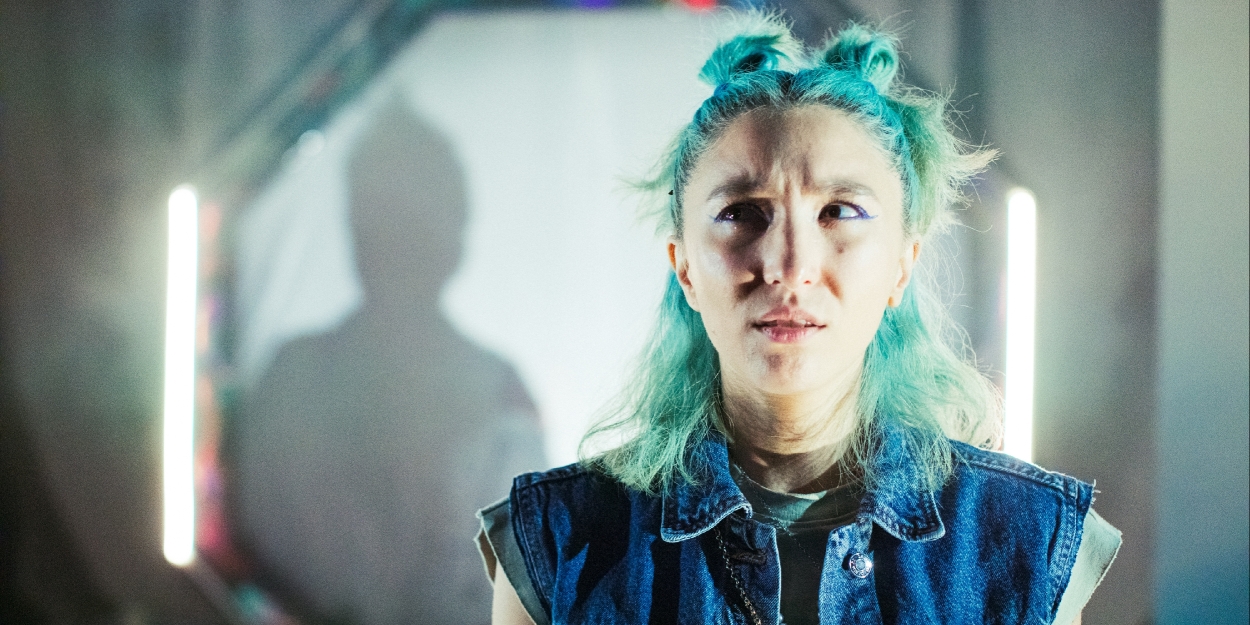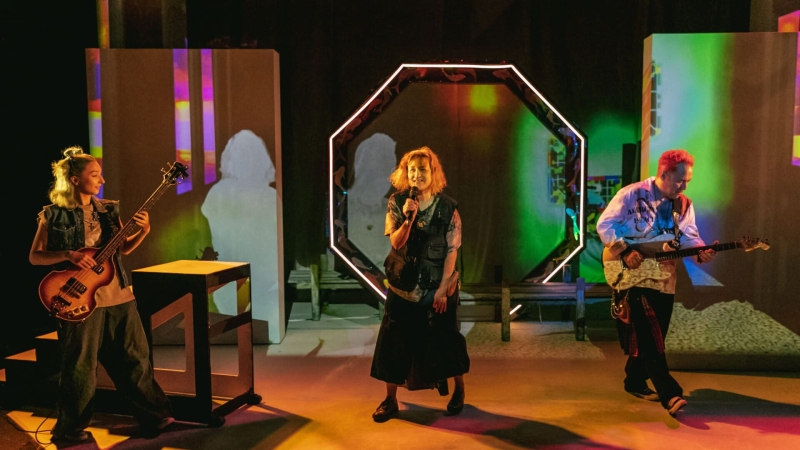Review: THE DAO OF THE UNREPRESENTATIVE BRITISH CHINESE EXPERIENCE, Soho Theatre
Highly intelligent writing meets exceptional performances in Kakilang's groundbreaking new work.

![]() From the minute Daniel York Loh finished his opening monologue in Kakilang’s The Dao of the Unrepresentative British Chinese Experience, I knew this would be a piece of theatre that wouldn’t allow me to remain comfortable, drift off or stop questioning my own beliefs for a second.
From the minute Daniel York Loh finished his opening monologue in Kakilang’s The Dao of the Unrepresentative British Chinese Experience, I knew this would be a piece of theatre that wouldn’t allow me to remain comfortable, drift off or stop questioning my own beliefs for a second.
Since leaving the Soho Theatre, and fittingly walking through Chinatown on my way home, I haven’t been able to stop thinking about this ground-breaking piece. Bear with me, I doubt my articulations will do this show justice, but I’ll die trying.
Throughout The Dao, Daniel York Loh, Melody Chikakane Brown, and Aruhan Galieva inhabit the space – complimented by minimal white sets that are home to highly effective projections – as they attempt to explore the telling of a representative British Chinese experience. The result is a combination of compelling punk songs, narrative scenes, and storytelling that provokingly question whether their task is even possible.
We learn of the blatant racism that these communities face in the United Kingdom from a scaringly young age, with their childhood playground experiences infested with racism from peers and a lack of accountability from superiors – only further justified by a system that forces them to “blend out and fit in”.
Aruhan Galieva delivers a spoken word piece narrating the experiences of an unassuming rebel forced to medicate their senses to survive in a society that continues to rewrite their story. It is here that Galieva’s talent is boundless and only continues to soar throughout the show’s two acts.

In another scene, where Melody Chikakane Brown narrates their first experience in Chinatown, that similarly conveys the message at the heart of this narrative: what is identity, how are stories determined and who writes your narrative? Brown exclaims, "It’s like I’ve come home but my family doesn’t recognise me.” We are struck by the complex struggles faced by the communities represented in this piece. Many feel like their experiences aren’t represented, and many are insecure because they feel too Chinese, or not Chinese enough. It is fascinating to learn about the inner thoughts of this underrepresented community and a privilege to watch these performers expose such injustices on stage.
The theatrical devices used in The Dao are exceptionally clever. We are reminded several times that we are watching a play, with the house lights even rising at a point, interrupting the story of a white police officer in one scene. As the lights dim, Galieva explains, “Now you know how it feels when someone else writes your story” – one of many times I caught myself smiling out of sheer appreciation for the intelligence and awareness of this piece’s writing.
Loh’s script is impeccable. It is constantly aware of its context, funny and exposing, and transcends boundaries and time. No matter how often we hear, “This is a period drama”, we know this story is urgent for our current times.
The Dao ends with possibly one of the best pieces of writing I have ever heard; a monologue encapsulating the importance of investigating your narrative and empowering yourself and those around you to take pride and ownership of your story and history. As the lights rise, I reflect on one of my favourite lines, where Galieva mentions that a “hipster theatre blogger” will be “singing their praises”.
I am unashamedly that blogger and will be singing the praises of everyone involved in The Dao of the Unrepresentative British Chinese Experience for a very long time.
The Dao of the Unrepresentative British Chinese Experience runs at the Soho Theatre until 13 July.
Photo Credit: Sanli Wang
Reader Reviews
Videos

